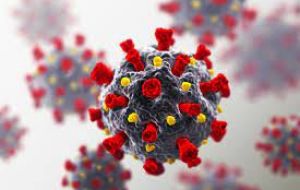MercoPress. South Atlantic News Agency
Belgian researchers find new angle to tackle SARS-CoV-2

Belgian scientists have developed a mechanism that could potentially prevent the SARS-CoV-2 virus from infecting humans, according to a paper published Tuesday in Nature.
The method involves a type of sugar present in human cells, which the COVID-19 virus uses to infect patients. Unable to infect the cell or reproduce itself within the human body, the virus dies within 1 to 5 hours, which would make this drug a much more effective system than vaccines, which prevent the most serious cases but do not prevent infection.
“Antivirals are much more complex to make compared to antibiotics, that's why we have so many fewer of them,” Giuseppe Novelli, a geneticist at the University of Rome Tor Vergata, told ANSA.
“The greatest complexity lies in the fact that, while bacteria are autonomous and with their own molecular machinery, viruses depend on the cells they infect to survive,” Novelli added. “This means that an antiviral drug must also affect our cells and this increases the difficulty of projection.”
All cells have, on their external surface, sugar molecules that serve for recognition, but they also constitute points that the virus uses as entry doors: it is as if they were locks in which SarsCoV2 holds the key, i.e. its Spike protein.
Since 2020 it has been known that Sars-CoV-2 interacts with the Spike protein before reaching the ACE2 receptor, where infection actually occurs, but scientists from the Universities of Leuven and Namur managed to block contact between the protein and the virus. When the virus approaches a cell, it begins to create a series of links that allow it to latch onto it, while it searches for a way to reach the ACE2 receptor.
“The virus doesn't immediately hit the ACE2 receptor, it has to first explore the surface of our cells to find the lock,” explained researcher David Alsteens in statements to the Belgian newspaper Le Soir. However, thanks to a series of 9-O-acetylated sugars, the scientists have managed to add a second lock that prevents the virus from accessing the lock that gives it passage to the coveted ACE2 receptor and thus prevents infection.
This discovery opens the door to the creation of new antivirals that facilitate the complete eradication of the virus, although for the moment its application will begin to be studied in mice and, depending on the results, it will be tested in humans.




Top Comments
Disclaimer & comment rulesCommenting for this story is now closed.
If you have a Facebook account, become a fan and comment on our Facebook Page!